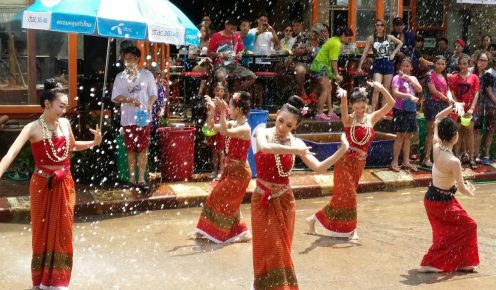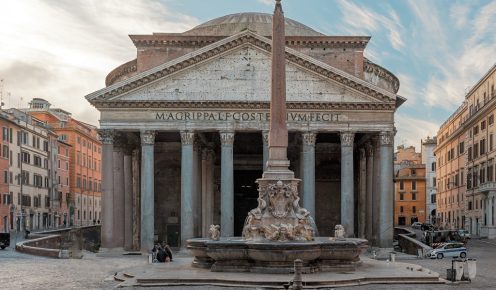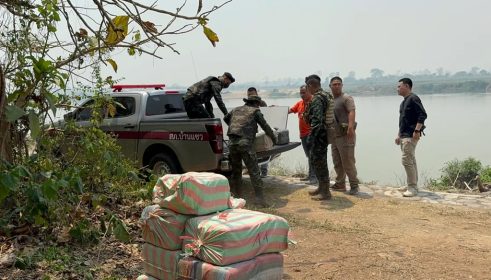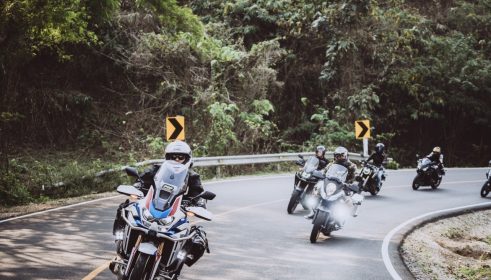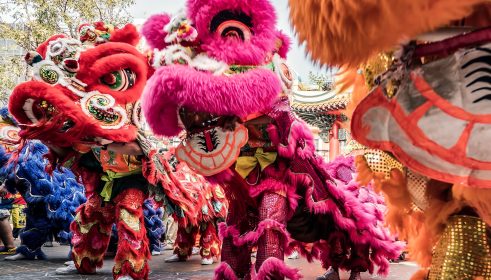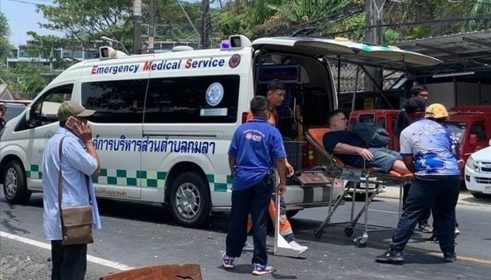CHIANGRAI TIMES – Lindsay Hawdon and her two boys swap Thailand’s beaches and cities for Lanjia Lodge, a tribal hill village in the Chiang Rai province.
We awoke on our first morning to a sheet of mist, pale as milk, hanging over the valley below. Slowly it dissipated to reveal the brown swirling waters of the Mekong River and the surrounding hills.
Lanjia Lodge sits halfway up the hillside in the village of Kiew Karn in northern Thailand. It is made up of four bamboo houses, built and run by local people with the aim of attracting travellers looking for a more insightful experience beyond Thailand’s beaches and cities. I was staying there with my two boys, eight-year-old Dow and five-year-old Orly, as part of a year-long trip around Asia and Australia.
“Are we above heaven?” Orly asked from our comfortable king-size bed, cocooned by mosquito nets. “It feels like we’re in the clouds.” All around us were the sounds of Kiew Karn stirring: a cockerel crowed, a piglet squealed, a cow groaned. In the village live the Hmong and Lahu tribes who fled to Thailand from Laos during the “Secret War” of 1968-73. They have a school, a temple, a village hall and a scattering of mud-brick houses.
After a breakfast of noodle soup on our cushion-strewn veranda, served by Ling, a pretty, delicate girl who smiled at everything we said, we trekked up the hill to the far end of the village. We had arranged to meet Mr Laogee, a Hmong shaman, and found him lying on a bed, in the darkest corner of his windowless hut, as he escaped from the noise of his four children next door. He stood up and greeted us with a low bow.
We were invited to sit on the bamboo mats on the damp earth floor and offered cups of steaming miang leaf tea. The role of the shaman in the Hmong tribe is not inherited as it is with the Lahu. To qualify for the role, the Hmong shamans, of which there are several, must have recovered from a coma, whether caused by illness or accident. The Hmong believe that only those who have done this can help others to recover from serious illness. To that end, a pig is sacrificed; and a buffalo horn is dipped in blood and stamped on the sick person’s back. “I’d rather stay sick,” muttered Dow.


